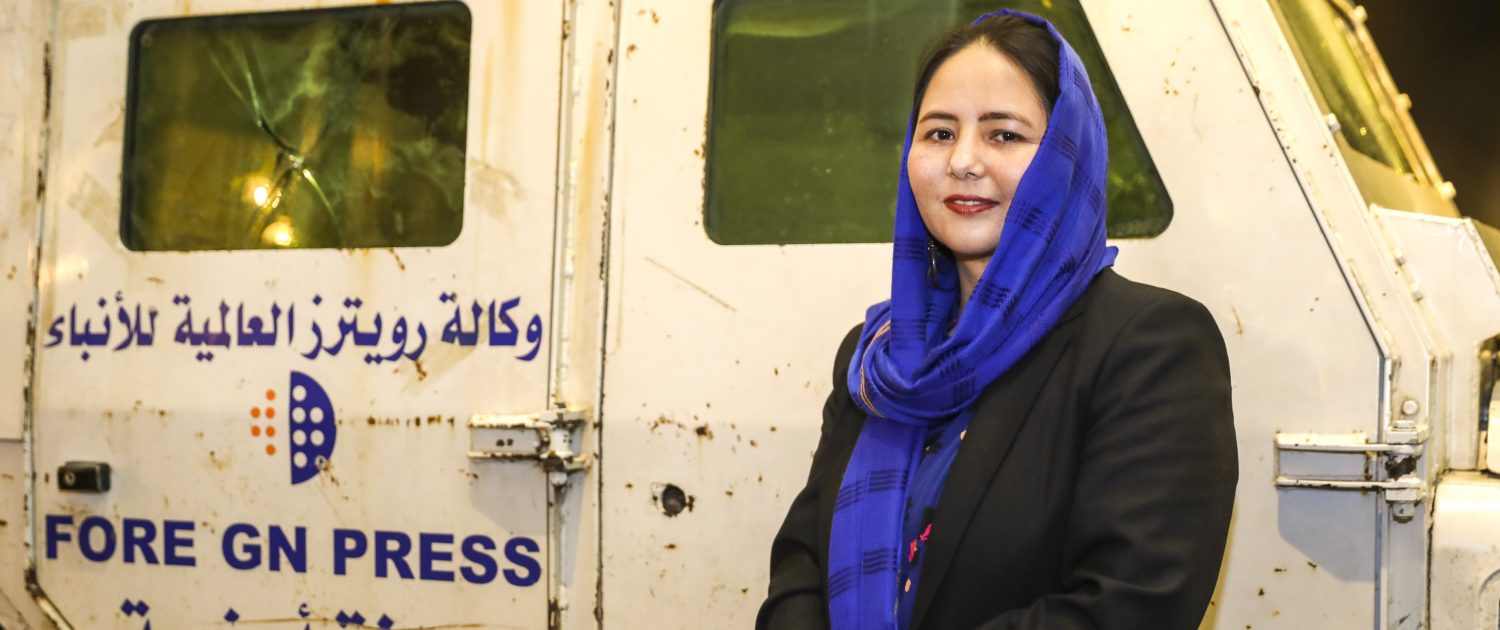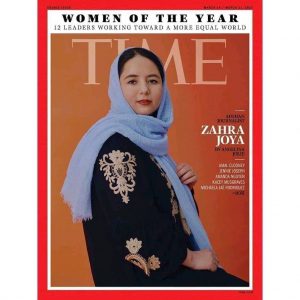Rukhshana Media
2022 Sandford St Martin Trustees’ Award winner
In recognition of an unwavering commitment to journalism and making Afghan women’s stories heard.

Journalism is a dangerous and even deadly business in Afghanistan. In recent years Afghan journalists, news agencies and broadcasters have been targeted by attacks, kidnappings and other violence by armed groups including the Taliban and Islamic State. However, since the Taliban took power in August 2021, an upswing in the mix of threats, violence and detentions, vague rules around “respecting Islamic values”, and a shattered economy have even further set back the clock on Afghan media progress.
Reporters Without Borders says that in the space of three months from the takeover 43% of Afghan media outlets disappeared. Of the 10,780 people (8,290 men and 2,490 women) working in Afghan newsrooms at the beginning of August, only four out of ten (3,950 men and 410 women) were still working in December. More than four in five women (84%) have lost their jobs since the arrival of the Taliban.
As new international crises and conflicts have erupted and foreign correspondents have been called away, the story of what is happening in Afghanistan has once more become largely the responsibility of those Afghan journalists who continue to work despite the dangers involved.
It is against this background that Zahra Joya, now a refugee living in London, runs Rukhshana Media: a news organisation she founded in 2020 to produce news by Afghan women for Afghan women and now focussed on women’s lives under Taliban rule.
“In my country men are in charge. They rule the sphere of war and politics, and the media and public space. It is Afghan men who decide what “matters” the most in Afghanistan. Women’s views are almost always excluded. I know this from experience.
“For more than seven years, I worked as a journalist for various Afghan news outlets. Often the only woman in the room, I understood early on that women’s views are not considered, and our voices are routinely side-lined.”
Since the Taliban takeover in August 2021, Rukhshana Media has partnered with international news organisations including the Guardian newspaper to tell the stories of women fleeing their homes as the Taliban advanced and the plight of divorced and single mothers, attacks on women police officers and the crushing of protests.
Click here to visit Rukhshana Media’s website.

In March, Zahra was named one of Time Magazine’s Women of the Year and was interviewed for the magazine by the actress, filmmaker and humanitarian activist Angelina Jolie.
This is part of their conversation which was published on 2 March, 2022:
Joya: The first time the Taliban regime were in Afghanistan, I was a child. I wasn’t allowed to go to school. But I loved learning. I asked my parents and they said, “You’re a girl, you are not allowed to go to school.” But after that, one of my uncles told me, “You can dress like me, and we can go to my school together.” We walked two hours to school every day. It was a long walk, but it was hope for me. My life journey was not easy. Every step I took was difficult.
Jolie: It’s an amazing story. When you were going to school as a boy, what was your name?
Joya: My name was Mohammed. Some of my relatives still call me “Mohammed Zahra” as a joke. And I say, yes, it’s a good name for me… When I was a child, my father was a prosecutor. Women used to come to our house and ask my father for help. I decided to become a prosecutor or lawyer to defend women’s rights. But when I went to university in Kabul, my classmates and my friends had stories that should be shared with others, but they didn’t have anywhere they could publish them. After a friend’s suggestion, I realized that I should become a journalist …
Jolie: What would be the best way for the international community to support the women now?
Joya: They should talk to the Taliban about women’s rights in Afghanistan. And until they protect women’s rights, the Taliban should not be recognized as a government by the international community.
Jolie: I know some people are trying to suggest they are different now.
Joya: They have not changed. They are an extremist and fundamentalist group. They do not believe in human rights. The people can see that they have not changed. They are torturing journalists and killing policewomen.
Jolie: I know this is not an end, because the Afghan people continue to push forward. But it must be very challenging when there is so much struggle. I know your work must help you. Do you have a vision for the work you want to do?
Joya: I get up every day and start my work as an editor. I get stories from my very brave colleagues in Afghanistan. Even though they are in hiding, they are working. Because it is our aim to work for our future. We are asking women who protest to write their experience and share their experience. It is very painful and sad. Honestly, we don’t do simple journalism these days; we are trying to write for our freedom. We are not allowed to work as journalists anymore. We don’t have access to information. But still, we are working.”
Click here to visit Rukhshana Media’s website.
